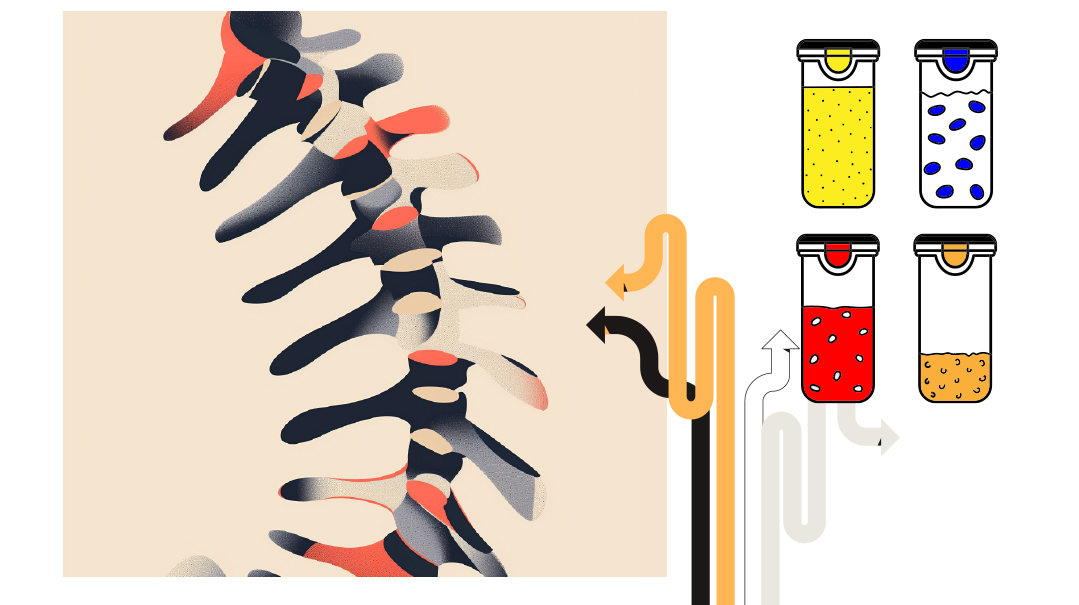Settle Your Skin
| December 27, 2022Unfortunately, teenagers and young adults may feel uncomfortable or self-conscious inquiring about acne treatments

Settle Your Skin
Dr. Jennie Berkovich
Acne is one of the most common reasons for visits to the pediatrician’s/ dermatologist’s office. Unfortunately, teenagers and young adults may feel uncomfortable or self-conscious inquiring about acne treatments. By the time they bring this up to a doctor, they are often frustrated, and have already “tried everything” without improvement. Spreading awareness and normalizing this very common condition can help kids and their families seek care earlier, and being proactive in seeking care can help improve outcomes and resolve the acne faster.
Managing acne most effectively involves targeting and treating multiple factors (including increased sebum production as well as the bacteria Propionibacterium acne). During the teenage years, hormones stimulate the increased production of sebum. This may lead to clogged pores, which contributes to the development of acne. In addition, bacteria get trapped inside the pores, which also leads to pimples. Larger and inflamed pores are also more prone to developing acne.
Almost everyone will get acne at some point; however, the severity varies from a few pimples to widespread cystic acne. The age at which acne can develop can vary as well, starting as young as nine or ten and into early adulthood.
Most people outgrow their acne, and it should not prevent children from participating in regular activities and socializing. At the same time, if children express hesitancy and apprehension about participating in social events due to their acne, their feelings should be validated. Just as important as becoming familiar with treatment options is offering your child the emotional support she needs.
Treatment approaches are stepwise and require a lot of patience. Teenagers receiving acne treatment may see that the condition initially appears to worsen in the first few weeks, and it may be up to eight weeks until they see improvement. It’s important to set realistic expectations. There are no quick fixes, and treatment requires motivation to stay compliant with the recommended therapies.
First-line treatments are the topical retinoids like Retin-A, Differin (Adapalene), or Tazorac. These should be used sparingly at first (one to two nights a week) as they can cause excessive dryness. Once treatment is well tolerated, it can be slowly increased to use every evening.
Both topical and oral antibiotic therapy for acne work much better when used in combination with a benzoyl peroxide product or formulation (wash or gel). Topical combination products include: Benzaclin, Duac, Benzamycin, or Epiduo.
Oral antibiotic therapy is typically reserved for more severe cases or failure to improve after topical treatment, and will usually be either minocycline or doxycycline. The typical duration of treatment is two to four months.
Dr. Jennie Berkovich is a board-certified pediatrician in Chicago and serves as the director of education for the Jewish Orthodox Women’s Medical Association (JOWMA).
Counting to One
Shoshana Schwartz
Ever hear of the age-old parenting tactic called “counting to three”? You give a child till the count of three to stop doing whatever negative action he’s in the middle of, such as emptying the ketchup bottle into his chocolate milk.
There’s nothing magical about the number three, but if your child knows that at three you’re going to follow through effectively, she’ll take evasive action at one or two. If you resort to “two-and-a-half, two-and-three-quarters…” she’ll take full advantage of your hesitation. Kids know exactly what you will and won’t tolerate.
There’s a look, a tone of voice, a posture that shows kids — and adults — when you’re sincere. And of course, over time, you develop a track record of sincerity. As important as that track record might seem to the people with whom you interact, the most important person you need to convince about your sincerity is you. When you know you’ll follow up on something, whether it’s boycotting chocolate milk for your child or putting an embargo on discussions with your sister while she criticizes, you have no need for any show of force or aggression. Developing a solid track record means you can rely on yourself, and that certainty comes across to others, in your posture, tone, and facial expression.
The more certain you are, the less aggressive your stance needs to be. Therefore, once you’ve practiced calmly asserting yourself with your child, you might find you no longer even need to count to three. You might simply count to one.
And when talking to your sister, you might be pleasantly surprised to discover that… you count.
Shoshana Schwartz specializes in addiction and codependency. She gives in-person and online addiction prevention lectures and workshops to education and mental health professionals, community leaders, and parent groups, as well as 12-Step workshops for nonaddicts.
Get Out of Your Way
Sara Eisemann
A conversation about how you feel is not supposed to end in an argument.
—Anonymous
Often our own insecurities or defenses get in the way of really understanding. We worry that if we accept another’s perspective, it threatens our own stance. If I get why he’s upset with me, does that mean I’m admitting to doing something wrong? If I hear her viewpoint, does that invalidate mine? Clearly, it does not. Two opposing facts can be true at once.
But sometimes, when the emotional stakes are high, it’s hard to remember that. If we can get out of our own way, however, we can give the gift of true understanding to another and create a connection that touches to the core, allowing the other to feel truly loved and allowing us to truly love.
Sara Eisemann, LMSW, ACSW, is a licensed therapist, directed dating coach and certified Core mentor.
(Originally featured in Family First, Issue 824)
Oops! We could not locate your form.







